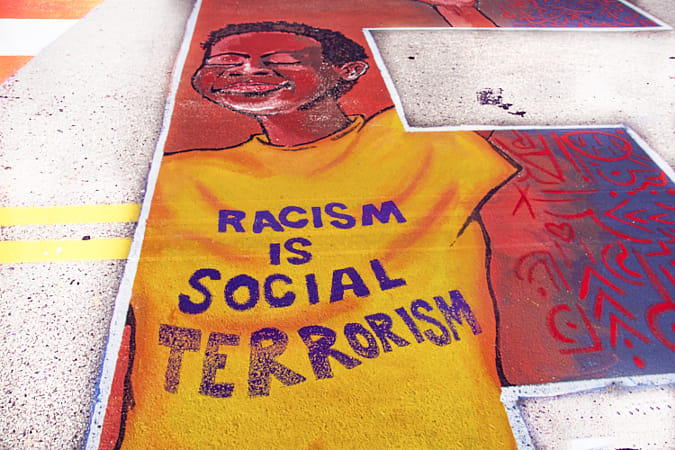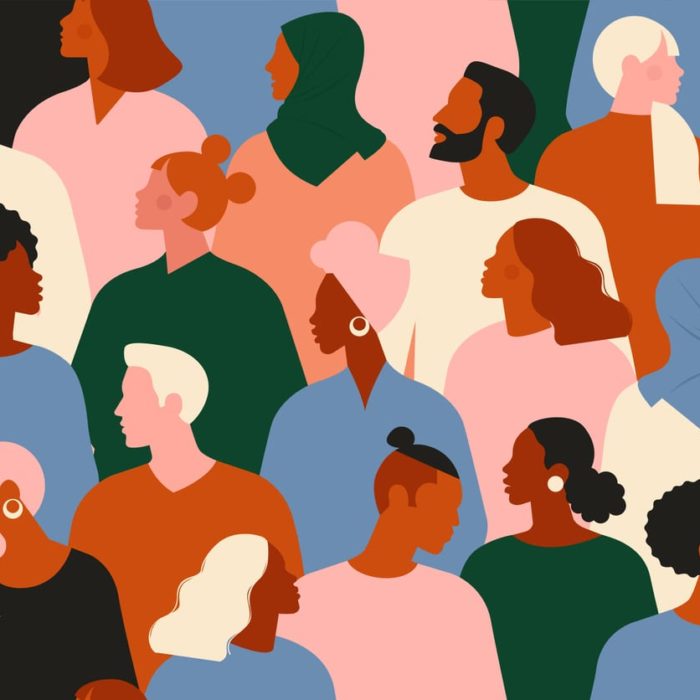
The conversation around race has never been louder in my lifetime.
The Black Lives Matter movement and the reverberating echo of “I can’t breath” is being heard around the world.
However, what happens now that #BLM is no longer one of the leading hashtags on Twitter?
Do we sit idle and wait until the next cornerstone George Floyd moment wakes us up from our social media slumber?
It’s easy for those of us that are not directly affected and don’t live on the wrong side of social privilege to go back to “normal”.
In addition, there are other problems in the world that are now commanding our attention on social media. This is a pivotal moment. Like waking up with a hangover, do we go back to sleep or do we decide it’s time to listen to our collective consciousness and start cleaning out the toxicity of our shared social body?
Like waking up with a hangover, do we go back to sleep or do we decide it’s time to listen to our collective consciousness and start cleaning out the toxicity of our shared social body?
For the majority of us, we feel a burning desire to do something that’s going to burn the system to the ground. However, we lack the gasoline and the matches. That initial flame of passion wanes and we go back to doing what we have done for too long: nothing.
Where do we turn for the next step? What could I possibly say or do that has any value in the largest social movement of my generation?
I feel inauthentic when I repost things on social media that I’m uneducated on.
Am I just jumping on some slacktivist trend?
The next step if we want to be a part of the conversation is to start listening and educating ourselves. If you’ve lived your life in a privileged bubble like me there has never been a better time to use your ears and eyes. We can also use our thumbs to hit the like button.
Yes, the like button! Social media is not just a place to look at cats (they are cute too though).
I have gone searching for social justice social media stars so we can sharpen our listening skills.
Ibram X. Kendi – Instagram: @ibramxk
In this video Ibram X. Kendi describes the difference between being “not racist” and being anti-racist.
Ibram X. Kendi is an American historian, activist, and prolific writer who has risen to become a leading voice in the effort to eradicate racism. Ibram was named one of the 100 Most Influential People by Time Magazine in 2020. He is in the process of launching a podcast called #BeAntiracist that promises to “get into the weeds on a different form of racism— and offer precise and practical solutions so we can all take action”.
If you’re looking to do more than share a few feel-good quotes on social media, the podcast sounds like a good place to start.
Roxanne Gay – Instagram: @roxannegay74
Roxanne Gay’s witty Masterclass trailer mentions her charming personality and her filthy past.
Roxanne Gay is a New York Times best-selling writer, author essayist, and public commentator. She is featured on the popular and prestigious Masterclass series teaching writing for social change. Her Instagram caption reads: “writing is a way of contributing to the political climate and saying something meaningful while being yourself. You don’t need to be brave when you’re writing; you need to acknowledge that you’re terrified and do it anyway.”
If you want to listen to someone that has something thoughtful and provoking to say you’re in the right place.
Don’t worry, her Instagram isn’t only heavy social commentary, she will also teach you how to make a delicious chicken Milanese.
DonYé Taylor – Instagram: @donyetaylor
DonYé Taylor is a business leader and creative that uses social media (@donyetaylor) to inspire other women of color to create thriving businesses. She’s a young, empowered woman who uses an uplifting social media message to address the unique challenges that she and other people in her community have to face. On her Twitter, she writes: “I love the energy towards black business on Black Friday but remember to have PATIENCE people. A lot of them are dealing with record sales & don’t have the same amount of resources/staff like these bigger companies have”. Donje has used her voice to give investment advice and was recently featured in the Wall Street Journal and teamed up with Adobe to celebrate Black History Month.
Ijeoma Oluo – Instagram: @iljeomaoluo
Ijeoma Oluo is another New York Times bestselling writer. She is the author of So You Want to Talk About Race. In fact, we do want to talk about race so her social media is a great place to start. In one Instagram post, she remarks “the idea that cops are the only thing standing between white families and the “violence” of Black people has been one of the major tools in maintaining the support of police forces for generations”.
She reaches beyond just the African American community, however. She regularly posts about a variety of other social justice topics involving Asian Americans, Latin Americans, and the LGBTQ+ community.
Her Instagram (@ijeomaoluo) has amassed nearly 500K followers proving that her voice is resonating with many.
Rachel Cargle – Instagram: @rachel.cargle
Rachel Cargle is a writer, author, and activist that runs a bookshop and writing center in Ohio. Rachel’s Instagram (@rachel.cargle) is peppered with screen captions from her iPhone’s Notes application. Her meditations and musing are often gentle and kind affirmations of love and creativity. At other times she posts pointed social commentary that cuts to the core.
In one such social commentary, she states:
Nothing about the movement for Black lives and expectations for antiracism could ever warrant the remark “You’re creating a divide in our country.” There was never unity. There is no divide to create. It existed when white America decided that our Black bodies would be bought and sold as property and extracted for free labor to ensure white financial foundations. What needs to be addressed is white people’s lack of showing up to demand the type of justice that would facilitate unity they claim to value.
What I am learning from the experience of exploring and listening to these voices is that the narrative surrounding the Black Lives Movement is very diverse. There is not one loud screaming angry voice that dominates public perception.
To listen to these creators is to appreciate the wide-ranging and diverse vision of a future that is less divided and a lot more just.
We all have so much to gain by becoming better listeners, and these social media are the perfect place to begin.
It turns out the next step for social justice begins with the follow button.



